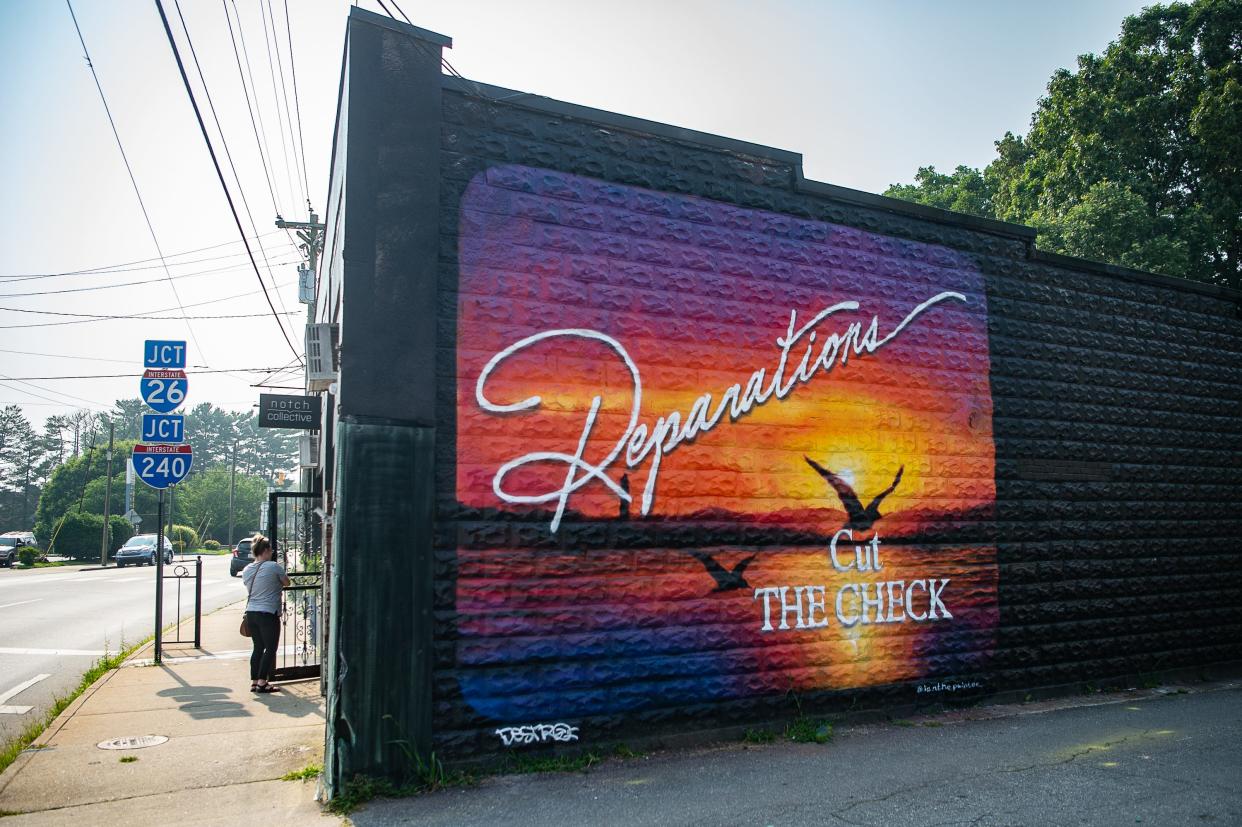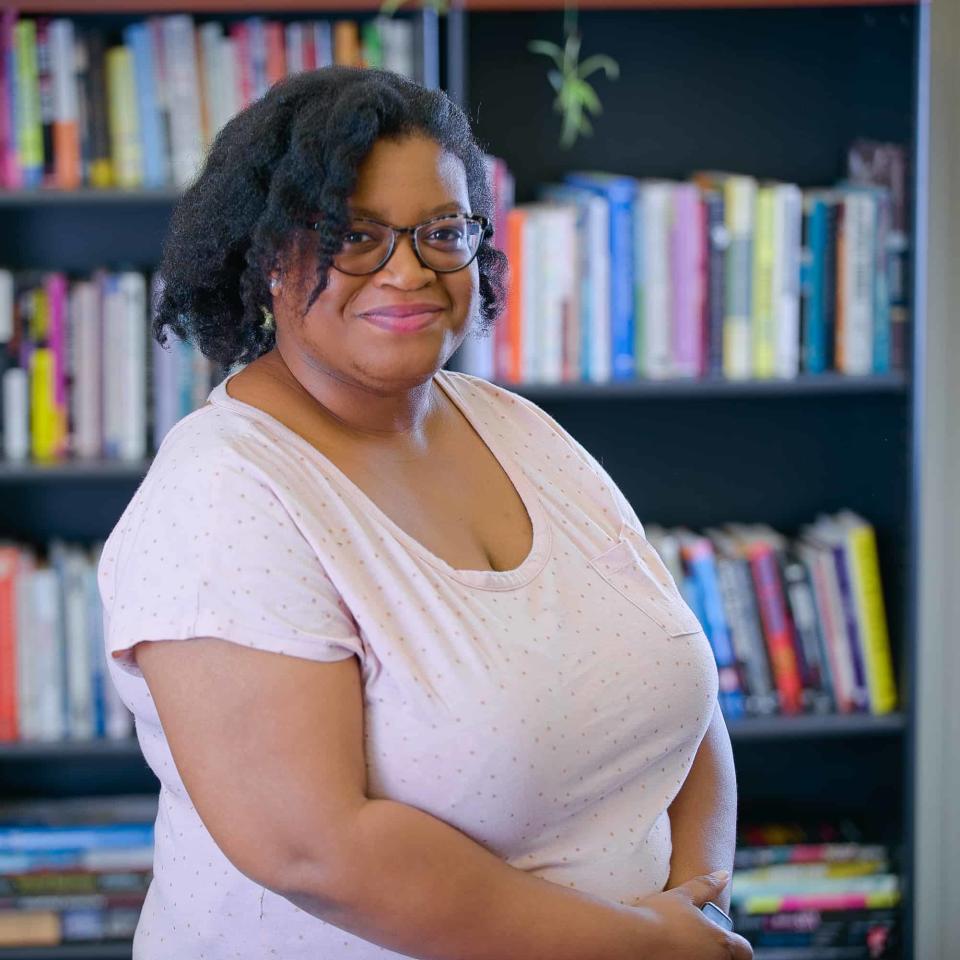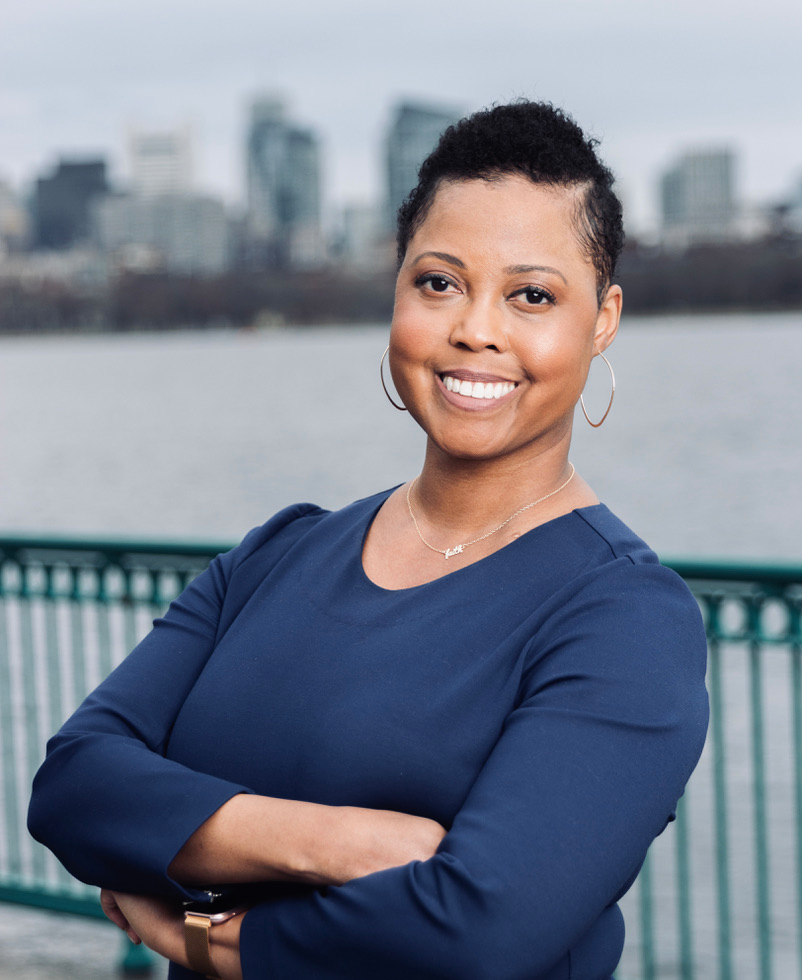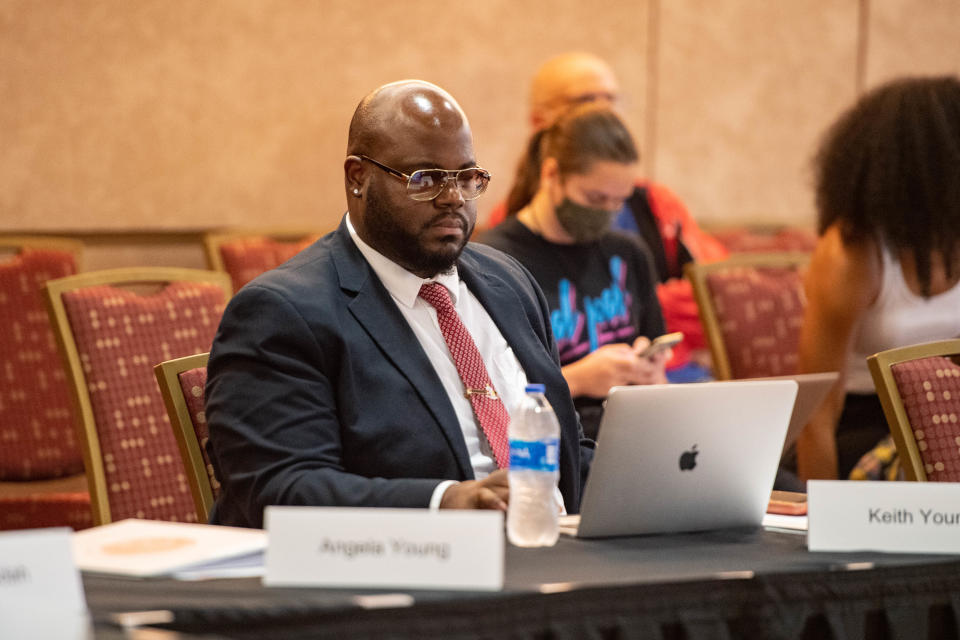New Asheville reparations project launches to do what city, county 'might not be able to'

- Oops!Something went wrong.Please try again later.
"ASHEVILLE - Since Asheville City Council passed a resolution supporting community reparations for its Black residents in July 2020, the historic process has been underway, but not without its hang ups.
Now more than two years later, the city and Buncombe County's Community Reparations Commission, a 25-member body seated in April, works toward a series of recommendations meant to repair damage caused by public and private systemic racism.
But a new reparations process has emerged, distinct from the efforts of municipal government: a Black-led, community-based project that intends to do what the city and county cannot.
More:
Asheville City Council candidates get personal, talk issues at Black Wall Street forum
Should Black youths have a seat at Asheville's historic Reparations Commission table?
Asheville City Council approves $216.9M budget; protester calls to defund APD disrupt vote
Tzedek, an Asheville-based social justice fund, announced the project in August, and will serve as a fiscal sponsor and incubator for the Reparations Stakeholder Authority of Asheville, modeled after a similar fund piloted in Evanston, Illinois.
Marsha Davis, executive director of Tzedek, said this effort is not in competition with the city and county process, but is instead a completely separate project, intended to complement the effort and provide the infrastructure for "long term reparations work to occur."

“While the city and the county have a beautiful process right now, and I think it’s going in a way that makes sense for a municipal process ... there are still huge swaths of our community in Asheville that’s not aware of, or have not had their input asked for in how these processes move forward,” Davis said.
Community engagement, and lack thereof, has long been a critique of Asheville's reparations effort.
Through community surveys led by the Asheville Racial Justice Coalition, Rob Thomas, executive director of the Racial Justice Coalition, said the organization has found that the "majority of Black people we interview have no idea that anything pertaining to reparations is going on."
Those that do, he said, don't know the details or specifics.
In 2000, 20% of Asheville's population was Black. That decreased to 13.4% in 2010 and is now 11.2%, according to 2020 census data.
Answer Man: Country star Jimmie Rodgers' historical sign MIA? Will it return?
The surveys are taking place as part of the coalition's Every Black Voice initiative, and Thomas declined to comment on how many people had been reached, but said it was between a "couple and a few hundred," with numbers changing everyday.
Davis said Tzedek is providing an initial $100,000 donation to the RSAA to support the hiring of a full-time staff member — with benefits and an annual salary of $80,000.
The staff member will serve as the reparations project director and help transition the RSAA from a fiscally-sponsored project to an independent 501(c)3 public charity.
Davis said the position will also be tasked with expanding community engagement, which is where the project is currently focusing, along with community education.
Rachel Edens, chief equity and human rights officer with Buncombe County, said she has been in contact with Davis through email, and only knows a little bit about the project.

In the next week or so, she hopes to connect with Davis and talk more about the authority.
“I really do believe the more voices that we have, the better," Edens said.
She said the efforts would run parallel, not perpendicular. As local governments follow one track, there's room for community models, too.
"In picking that up, and moving forward with what community-based models look like, we’re just moving forward to a more broad look at what reparations could look like," she said.
What is a Reparations Stakeholder Authority?
According to Tzedek's "call to action," the goal of the RSAA is to "provide an infrastructure for Black residents of Asheville and Buncombe County to guide the distribution of funds intended for reparations" and to administer an Asheville Reparations Community Fund:
"The Fund is intended to be a perpetual resource for Buncombe County’s Black community, to complement the tax revenue stream earmarked by the City and County for initial reparations remedies, and to ensure funding is available for reparations once those tax revenues are no longer available."
Police brutality case: 5 years after police brutality case that changed Asheville, where are cop, Black pedestrian?
Strip-searched: White deputy who strip-searched Black man in Asheville stop should pay $262K: lawyers
This model was first implemented in Evanston — part of a two-prong reparations effort, with city government leading one process, and a community authority leading the other.
Sol Anderson, president and CEO of the Evanston Community Foundation, said Evanston was the first municipality in the U.S. to pass reparations legislation, which it did in 2019.
“Because of some of the laws, restrictions, related to municipal government, Evanston’s reparations program has to be focused on housing, economic development or education,” Anderson said.
Affordable homeownership in Asheville? 11 new townhomes proposed for West Asheville
The city of Evanston committed the first $10 million of its revenue from the sale of recreational cannabis to reparations, and the first phase of the city's program will give 16 residents $25,000 each for home repairs or property costs.
Anderson said while the city focused on its housing program, the Evanston Community Foundation was approached by a group of community members, some of whom were involved in the passing of the initial reparations legislation.
The group had formed the Reparations Stakeholder Authority of Evanston, intended to "do the things that the city fund can't do."
Among examples of this, Anderson named direct cash payments with no restrictions.
In 2020, the Evanston Community Foundation became the fund holder of the Evanston Reparations Community Fund, established by the Reparations Stakeholder Authority.
Anderson said the fund is currently just shy of $300,000. There is a goal of $1 million before the authority will begin disbursement of funds.
No plastic bags in Asheville, no exception? This group hopes so.
Among the organizers of the stakeholder authority in Evanston is Robin Rue Simmons. She is the founder and executive director of FirstRepair, a nonprofit that informs local reparations, nationally.
Former Alderman for the city of Evanston, Simmons was the architect of the reparations legislation that was passed in 2019. She now serves as chairperson of the City of Evanston's Reparations Committee.
From her vantage point with both the municipal and community-led effort, she said the dual approach to reparations is a "necessary model."
“This two-prong partnership, reparations leadership, is necessary for Black communities to work toward full repair,” Simmons said.
“The municipal government will only have so much purview. There’s going to be legal frameworks that create barriers, there is going to be injury and harms outside of the municipal government."
Food service workers: Asheville food service workers call for free parking downtown; Buncombe proposes solutions
To her knowledge, Asheville and Evanston are the only two localities in the nation to form a Reparations Stakeholder Authority and fund.
Thomas reiterated that Asheville's authority is a "complement" to the city's process.
"It's not to compete, it’s not to discredit, and it’s not to go against, it’s simply to be able to do some of the things that they are legally bound not to be able to do," he said.
The voice of the community
Asheville's reparations architect, former City Council member Keith Young, said he was fully supportive of the Reparations Stakeholder Authority of Asheville.
Young is a current member of the Community Reparations Commission.

He said the RSAA will be "empowering," with the ability to harness the voices of individual Black community members into "one harmonious accord."
“My goal, not only as a commission member and former councilmember, but as a community member and leader, is to make sure that every Black person in this county has their voice heard on this, should they want it to be heard," Young said. "There needs to be an avenue for that, and I think the RSAA can provide that.”
This was further emphasized by Thomas and Davis: those most harmed have the power to control the process.
Higher rates? Fairway improvements? Public meets new Asheville Muni Golf Course operators
“It’s really making sure that after the attention of the newspapers, and the mainstream media wanes, and after the attention of the city and county processes wanes, that we still have a Black-led, Asheville-based organization that is ensuring that members of our Black community are informed and can make informed choices about where these finances go," Davis said.
She imagined this as a long term solution, but not one that would interrupt or influence the city and county's own process.
“The question always becomes with the reparations movement work, is how do you keep this going in the long term after the short time-based commission is gone?” Davis asked.
Edens said hearing more voices is definitely a good thing, and there could always be room to collaborate.
"It’s really about what the community needs and wants, and it’s about hearing back from the community," Edens said. "So in addition to what the commission members say, we want the voice of the whole community here.”
While Davis can't yet say specifically how RSAA money will be directed — a decision that will ultimately be up to the community — as a nonprofit, a status she hopes the authority can secure by 2023, there will be "flexibility to experiment with other ways of getting reparations funds out the door."
Among these, she said, are housing loans, direct cash payments or grants to Black-owned institutions, businesses and organizations.
When reached for comment Sept. 6, Brenda Mills, the city's director of equity and inclusion, said she is not familiar with the new initiative, and declined to comment.
Sarah Honosky is the city government reporter for the Asheville Citizen Times, part of the USA TODAY Network. News Tips? Email shonosky@citizentimes.com or message on Twitter at @slhonosky.
This article originally appeared on Asheville Citizen Times: Asheville social justice fund to lead new reparations project

